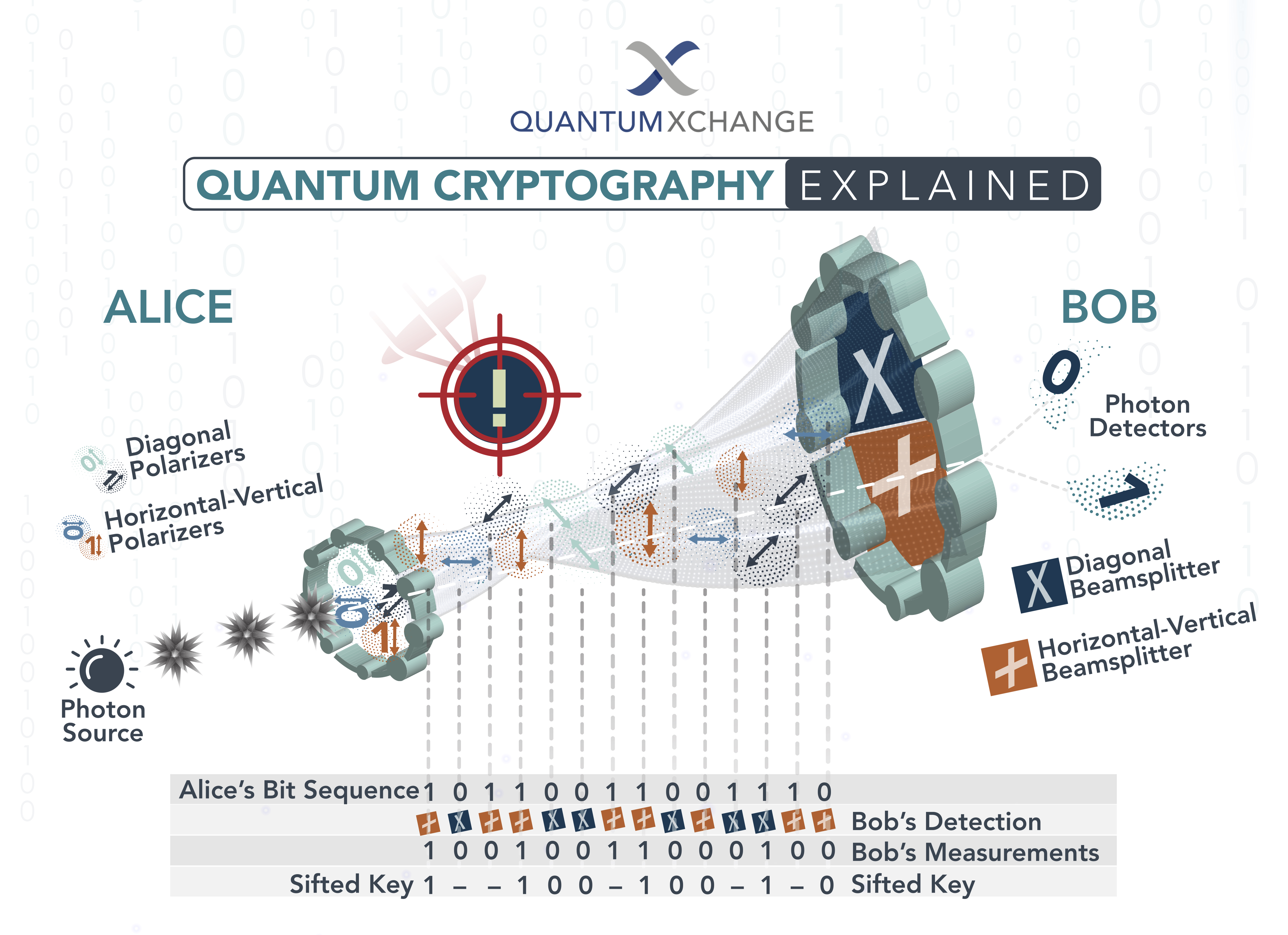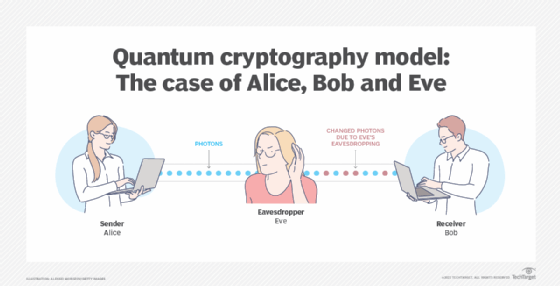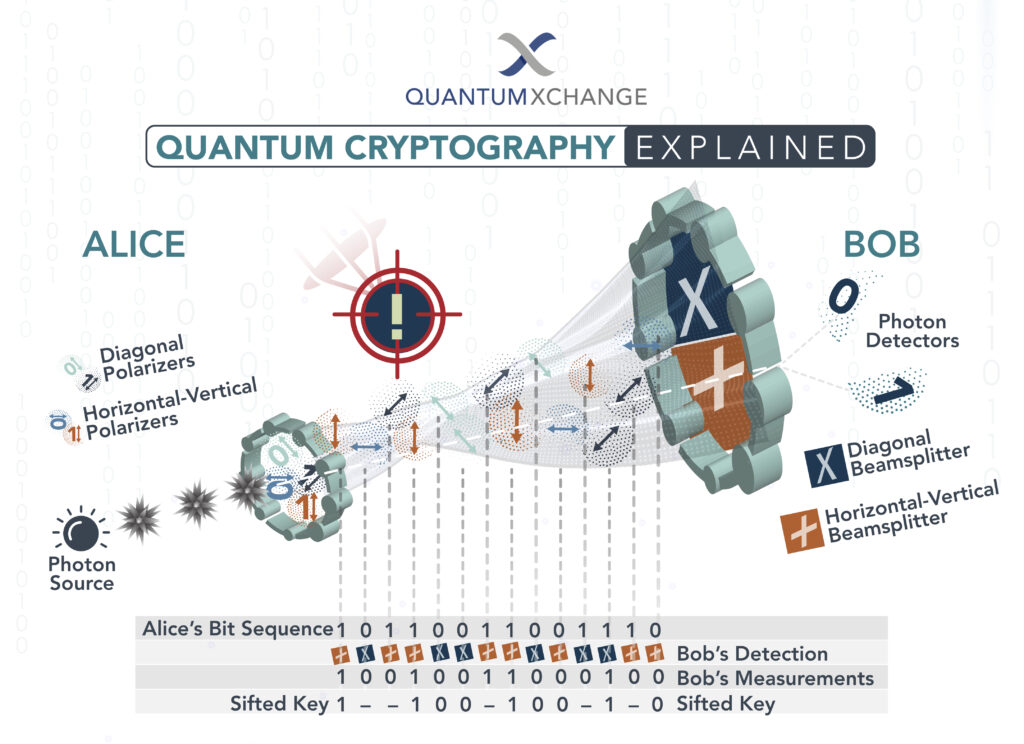As technology continues to advance, the need for secure communication becomes increasingly important. One of the most promising solutions to this problem is quantum cryptography. Unlike traditional cryptography, which relies on mathematical algorithms, quantum cryptography uses the fundamental principles of quantum mechanics to encrypt and decrypt data. But where exactly is quantum cryptography used, and how does it work in practice?
One of the most notable applications of quantum cryptography is in the field of financial transactions. Banks and other financial institutions rely on secure communication to prevent fraud and protect sensitive customer data. Quantum cryptography provides an unprecedented level of security, as any attempt to intercept or eavesdrop on a quantum-encrypted message would immediately alter the state of the message, making it unreadable to the attacker. Additionally, quantum cryptography can be used to generate random numbers that are truly random, rather than pseudorandom, which is important for tasks such as generating cryptographic keys.
Quantum cryptography is mainly used for secure communication over the internet. It employs the principles of quantum mechanics to ensure secure transmission of data. It is used in a variety of areas, such as banking, government, military and healthcare. It is also used for secure communication between two or more parties.

What is Quantum Cryptography?
Quantum cryptography is a method of data encryption that uses the principles of quantum mechanics to protect data from malicious interception. It employs a process called quantum key distribution, which is a form of cryptography that uses the unique properties of quantum particles to ensure that any attempts to eavesdrop on a communications channel are detected. With this method of cryptography, it is virtually impossible for a hacker to gain access to the information being transmitted.
Quantum cryptography makes use of the Heisenberg Uncertainty Principle, which states that it is impossible to know both the exact position and momentum of a quantum particle with perfect accuracy. This principle is used to create a secure communications channel, as any attempts to measure the quantum particles will cause them to change in a manner that can be detected by the sender and receiver.
Where is Quantum Cryptography Used?
Banking and Finance
Quantum cryptography is used in banking and finance applications to protect sensitive data from being intercepted by malicious actors. It is particularly useful for preventing the theft of customer data, such as credit card numbers and bank account information. The use of quantum cryptography can also protect against fraud, as it can detect any attempts to tamper with the data. In addition, quantum cryptography can be used to protect financial transactions and other sensitive data, such as trading information.
In the banking industry, quantum cryptography can be used to secure the communications between banks and their customers. This ensures that customer data is kept safe and secure, and that any attempts to intercept the data are detected. It can also be used to protect the data stored on banking networks, ensuring that the data is kept safe from malicious actors.
Government and Military
Quantum cryptography is also used by government and military organizations to protect sensitive data. It is particularly useful for protecting classified information, such as military secrets and diplomatic communications. By using quantum cryptography, government and military organizations can ensure that any attempts to intercept the data are detected, and that the data remains secure.
In addition, quantum cryptography can be used to secure the communications between government and military agencies. This ensures that any sensitive information is kept safe from malicious actors, and that any attempts to access the data are detected. It can also be used to protect the data stored on government and military networks, ensuring that the data is kept safe.
Healthcare
Quantum cryptography is also used in healthcare applications to protect sensitive medical data. It is particularly useful for protecting patient records, such as medical histories and treatment plans. By using quantum cryptography, healthcare organizations can ensure that any attempts to access the data are detected, and that the data remains secure.
In addition, quantum cryptography can be used to secure the communications between healthcare providers and patients. This ensures that any sensitive information is kept safe from malicious actors, and that any attempts to intercept the data are detected. It can also be used to protect the data stored on healthcare networks, ensuring that the data is kept safe.
Frequently Asked Questions about Quantum Cryptography
Quantum cryptography is a secure communication method that uses quantum mechanics to encrypt and decrypt data. It is an emerging technology that is used to protect sensitive information from unauthorized access or tampering.
What is Quantum Cryptography?
Quantum cryptography is a form of cryptography that utilizes the principles of quantum mechanics to encrypt and decrypt data. It relies on the properties of quantum particles, such as their ability to exist in multiple states at once, to create a secure communication channel. Quantum cryptography is considered to be the most secure form of communication available today.
Quantum cryptography is used in many different areas, such as banking, military communications, and online transactions. The technology is still relatively new, but it has the potential to revolutionize the way we communicate online.
What Advantages Does Quantum Cryptography Have?
The main advantage of quantum cryptography is its security. The quantum encryption process is virtually impossible to crack, and the data is extremely difficult to intercept. This means that sensitive information can be transmitted securely without the risk of interception or tampering. Additionally, quantum cryptography can be used to verify the identity of the sender and receiver, making it ideal for secure transactions.
Another advantage of quantum cryptography is its speed. It is much faster than traditional encryption methods, which can make it an attractive option for those looking for a secure and fast communication channel.
What Disadvantages Does Quantum Cryptography Have?
The main disadvantage of quantum cryptography is that it is expensive to set up and maintain. The equipment and infrastructure needed to use quantum cryptography can be costly, and the technology is still in its early stages, so there may be compatibility issues with existing systems. Additionally, quantum cryptography requires a secure physical connection between the sender and receiver, which may limit its use in certain situations.
What Are Some Applications of Quantum Cryptography?
Quantum cryptography is used in many different areas, such as banking, military communications, and online transactions. It is also used in some quantum computing applications, such as quantum key distribution and quantum secure direct communication. Additionally, quantum cryptography can be used to securely transmit large amounts of data over long distances, making it ideal for applications such as satellite communications.
How Does Quantum Cryptography Work?
Quantum cryptography works by encoding data as quantum particles, such as photons. These particles are sent from the sender to the receiver, and the data is decoded by measuring the properties of the particles. The data is encrypted using a quantum key, which is a string of random numbers generated by the sender and receiver. This key is used to encrypt and decrypt the data, ensuring that only the intended recipient can view the data.

In conclusion, quantum cryptography is a cutting-edge technology that has the potential to revolutionize the way we secure sensitive information. It is currently being used in a variety of fields, including finance, government, and military operations. However, its full potential has yet to be realized, and it is likely that we will see even more widespread adoption of this technology in the coming years.
As we continue to rely more and more on digital communication and storage, the need for robust and secure encryption will only increase. Quantum cryptography offers a way to meet this need, providing a level of security that is unparalleled by traditional encryption methods. Whether it is used to protect financial transactions, secure classified information, or safeguard the privacy of individuals, quantum cryptography has the potential to make our digital world a safer and more secure place.

